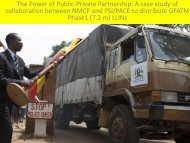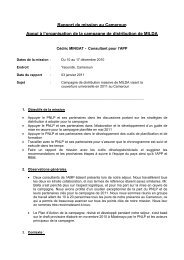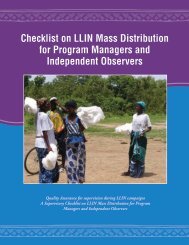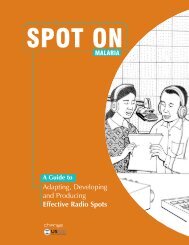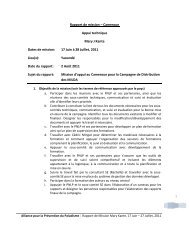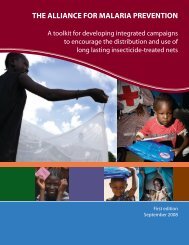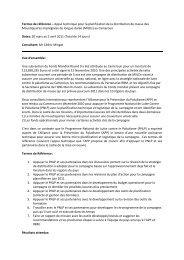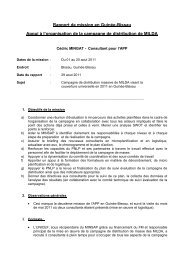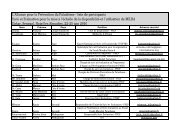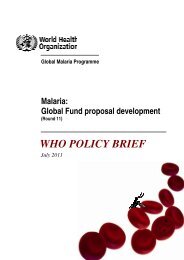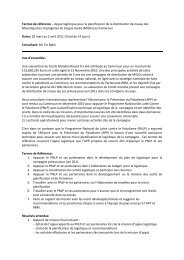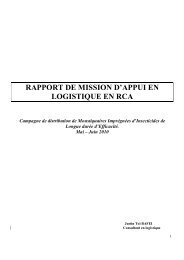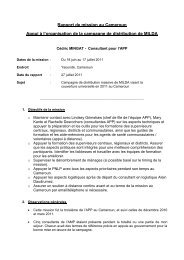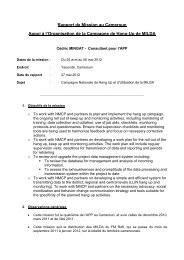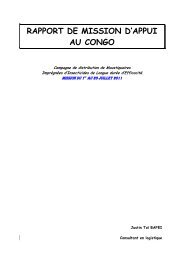Anambra State Post-Campaign Net Tracking Survey
Anambra State Post-Campaign Net Tracking Survey
Anambra State Post-Campaign Net Tracking Survey
Create successful ePaper yourself
Turn your PDF publications into a flip-book with our unique Google optimized e-Paper software.
<strong>Anambra</strong> LLIN campaign evaluation<br />
because, in general, for scaled responses people tend to choose the highest score (“definitely<br />
could” or “strongly agree”). After recoding all the questions, a mean score was computed to<br />
reflect the household ability/willingness to take action to prevent malaria infection or household<br />
knowledge about malaria. For questions on taking action, the households were then classified<br />
into two groups, the ones which are less likely to take action (score equal or less than 0) and<br />
those which are more likely to take action (score more than 0). For questions on knowledge,<br />
households were also classified into two groups (good knowledge for a score more than 0 and<br />
poor knowledge for a score equal or less than 0).<br />
Ethical considerations<br />
Individual verbal informed consent was sought from all respondents before interviews were<br />
conducted. Before each interviewee was asked to give consent, the interviewer gave a brief<br />
description of the study objectives, the data collection procedure, the potential harm to<br />
participants, the expected benefits, and the voluntary nature of participation at all stages of the<br />
interview. In addition, consent was also sought from community representatives (chiefs).<br />
Participants were informed of the possibility that a repeat interview may be conducted by a<br />
different person to ensure data quality. They were also ensured that data would be kept<br />
confidential and would not be shared with non-project staff. Participants in the final data set<br />
were rendered anonymous by removing the variable “name” and all other information within a<br />
particular cluster that could help to identify individuals or households, and replacing these with<br />
a new numerical identification number generated to uniquely identify the individuals and the<br />
households.<br />
Ethical clearance for the survey was obtained from the Ethical Committee of the Nnamdi<br />
Azikiwe University teaching hospital (NAUTH), reference number NHREC/05/01/2008B.<br />
17


